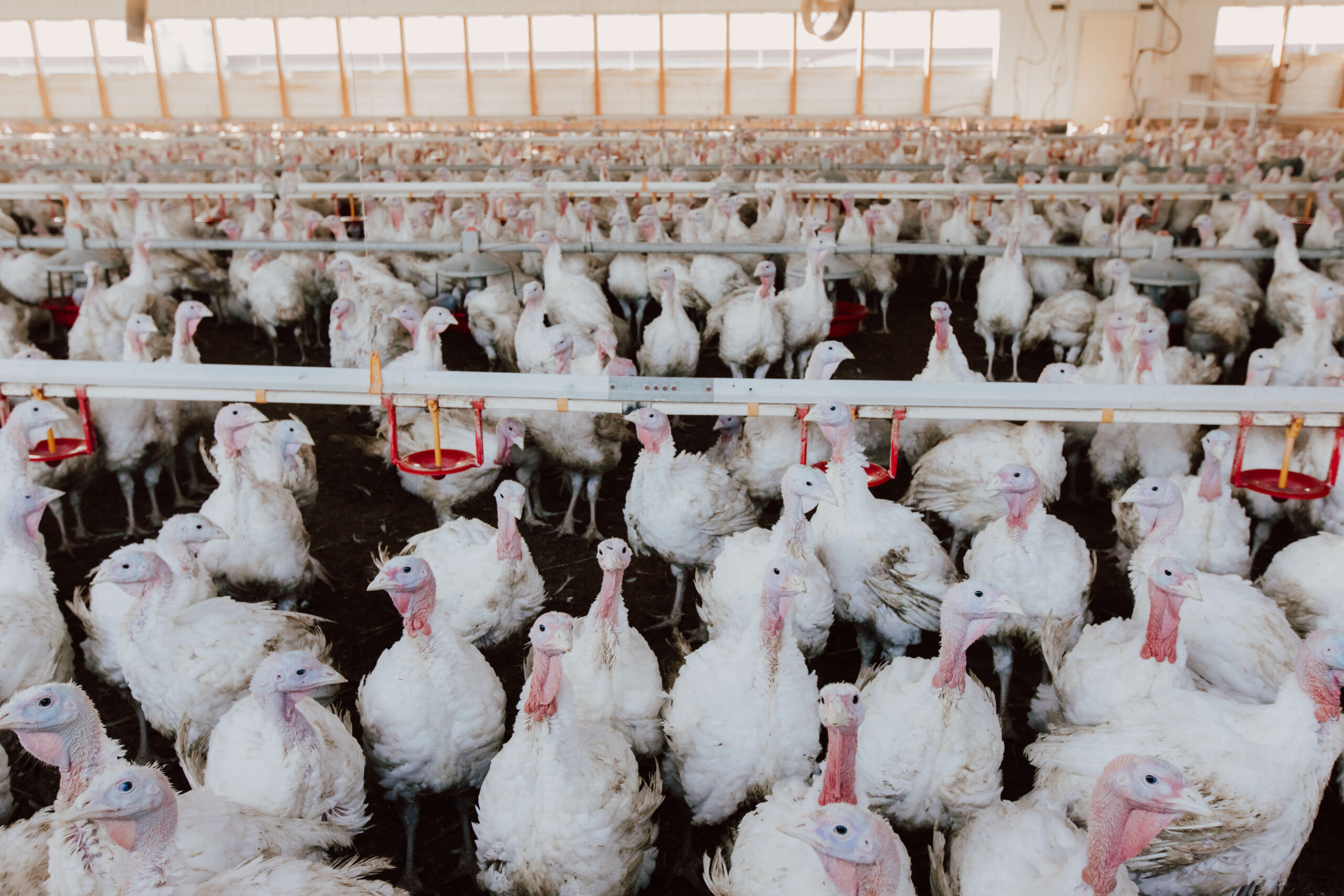Written by: Ashley Wagner (Probiotech International Inc.) & Ethan Groos
What is ‘stress’?
Generally, the term ‘stress’ is used to describe the detrimental effects of a variety of factors on the health and performance of livestock. Stress in birds is characterized by having limited body resources for growth, reproduction, response to environmental changes and defense mechanisms compared to mammals. Thus, any slight deviation from normal conditions leads to the rapid redistribution of body resources including energy and protein, at the expense of growth, reproduction, and health. When these challenges become more intense or occur more frequently, serious chemical and physical changes take place within the bird with far reaching consequences. For example: birds may become fatigued and weak which may lead to starvation and increased susceptibility to infectious diseases. There are common sources of stress in birds, which can be grouped under one or more of the categories defined by Rosales (1984) and summarized in Table 1.
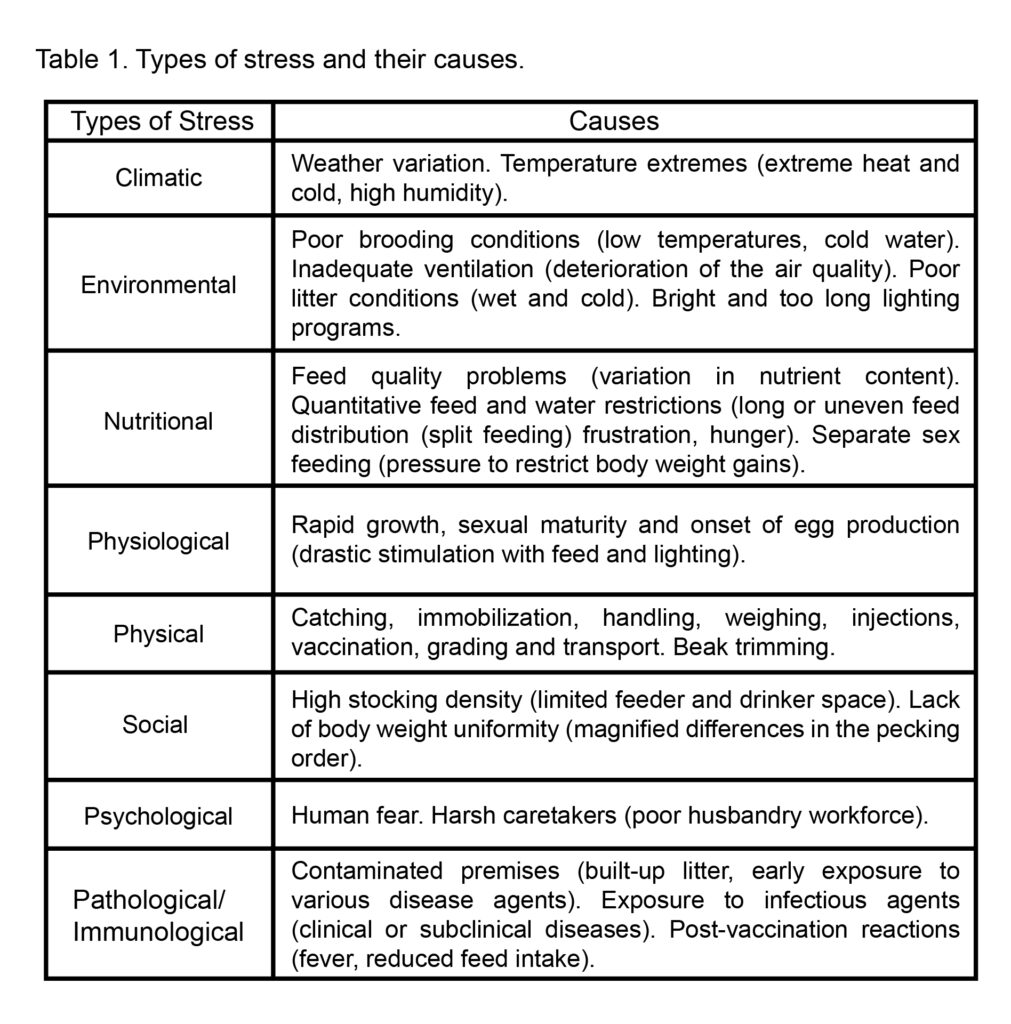
Mammals such as pigs are no strangers to the effects of stress during production. Due to the rapid growth of pigs, there are little reserves to combat stressors, especially during early growth. This combined with environment changes, socialization, and dietary changes, can lead to reductions in performance that are stress-related. The reductions in pig performance can manifest as reduced appetite, increased susceptibility to disease (a physical symptom could be scours), and ultimately mortality.
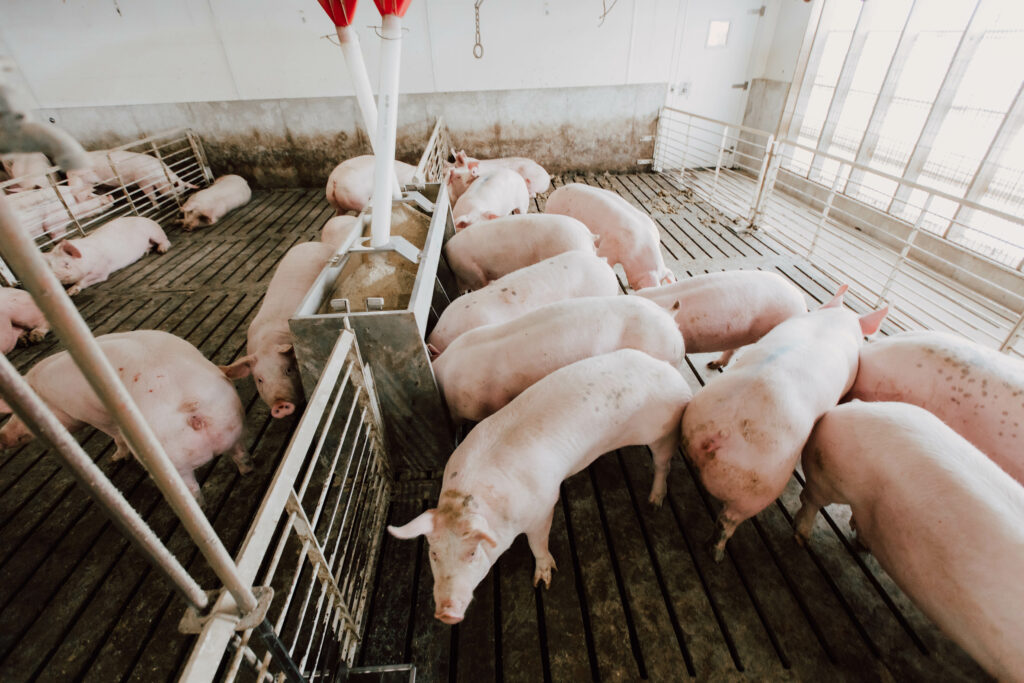
In addition to the categories of stress mentioned above, all the possible types of stressors experienced by livestock can be broadly classified under two categories: Avoidable stressors and Unavoidable stressors (Mohan, 2005) as presented in Table 2.
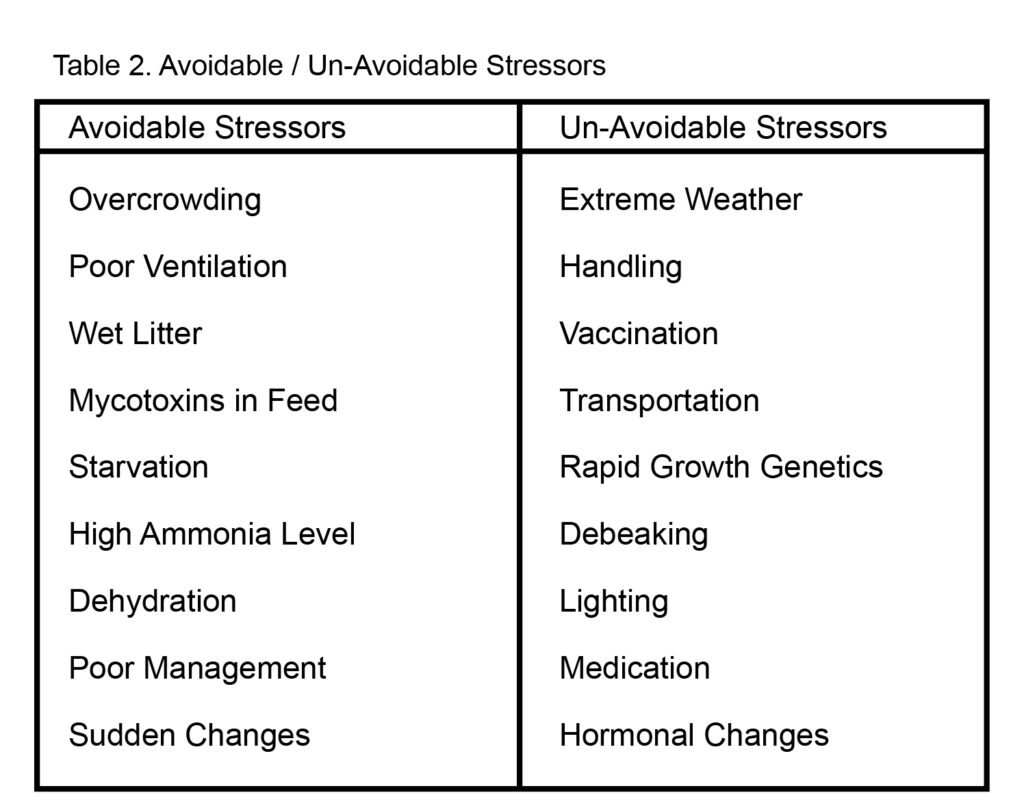
Even if the avoidable stressors can be eliminated under efficient management conditions, the load of unavoidable ones at best can only be minimized; thus, stress factors are inevitable events in livestock husbandry. The consequences of the stressors, as previously mentioned, impact performance and economics in all poultry and swine production. Beyond good management practices, what else can be done to alleviate unavoidable stressors?
Can botanicals alter stress-induced behavior?
Botanical blends have been examined in all commercial livestock species to have a wide variety of benefits from supporting gut and respiratory health to brain function, impacting hormones and behaviour. The product CCC is a blend of botanicals and antioxidants that was developed to promote calm and positive-oriented behaviour(s) and improve performance during stress periods (ex. heat, transport, high density, aggressive behaviour, social re-grouping, etc.). Additionally, the compounds in CCC has been shown to alter brain serotonin (Graph 1) or the “happiness hormone” levels. Increased serotonin concentration are directly correlated to enhanced mood, emotion, and appetite. As a result, there are alterations on animal behavior and performance.
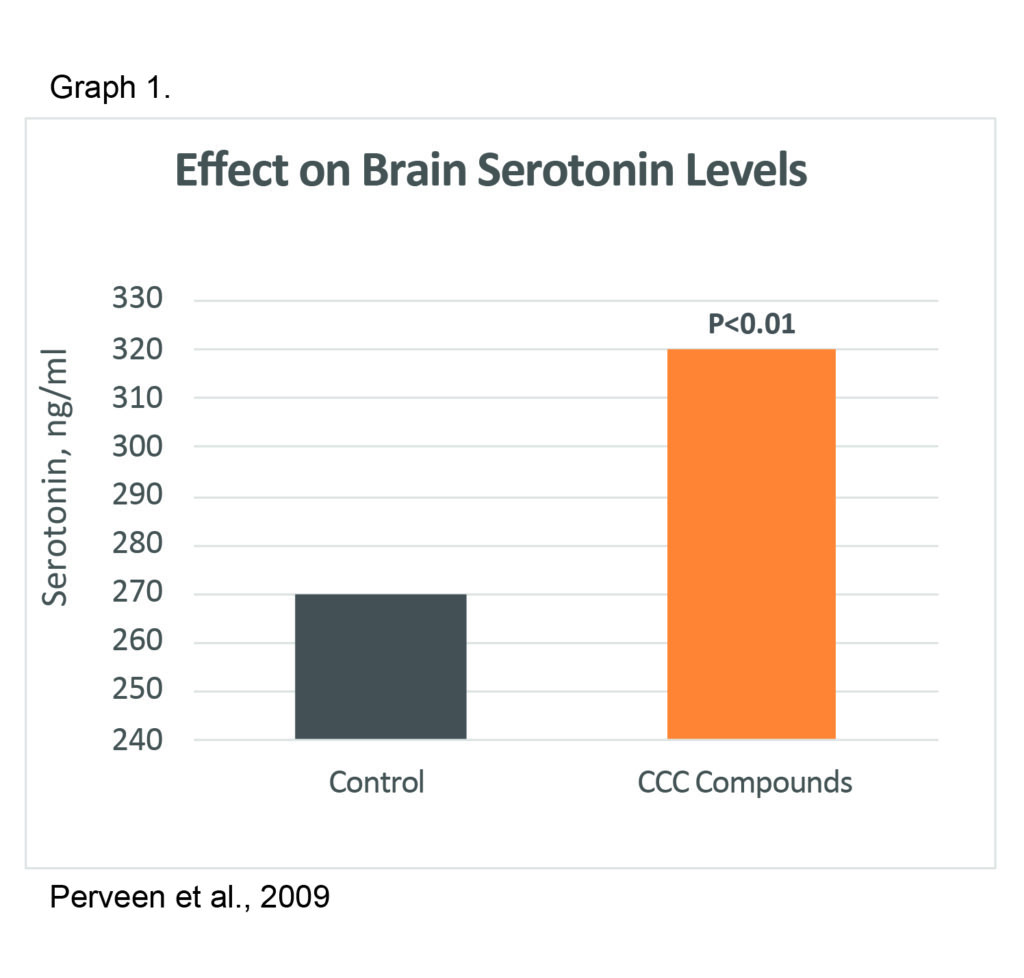
Novel Object Test (NOT) in Poultry
Botanical blends have been examined in all commercial livestock species to have a wide variety of benefits from supporting gut and respiratory health to brain function, impacting hormones and behaviour. The product CCC is a blend of botanicals and antioxidants that was developed to promote calm and positive-oriented behaviour(s) (Table 3) and improve performance during stress periods (ex. heat, transport, high density, aggressive behaviour, social re-grouping, etc.).
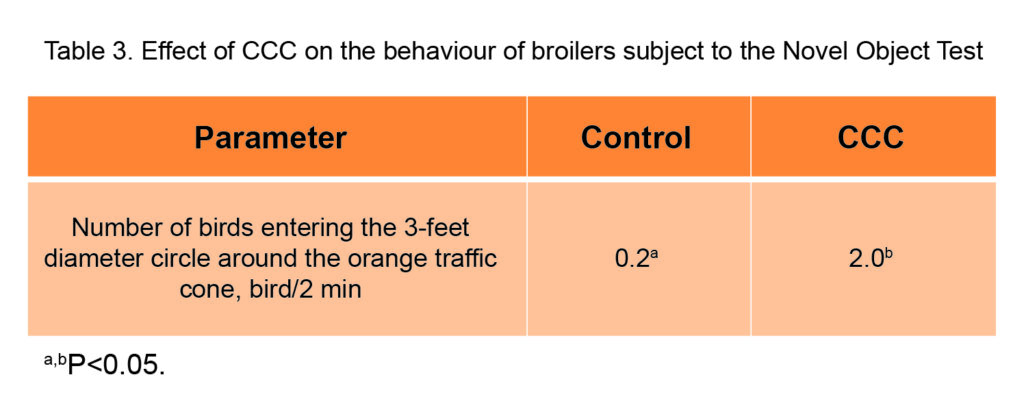
Post-Mixing Aggression in Pigs
Three hundred thirty-six grow/finish pigs (6 pigs/pen) were either on the control or CCC liquid treatment (200ppm) for three days prior to mixing. Pigs were monitored for fighting threats and lesions. The number and time of each fight or threat and the percentage of pigs per pen with severe lesions were reduced when pigs were on the compounds contained in CCC prior to mixing (Graph 2 and 3).
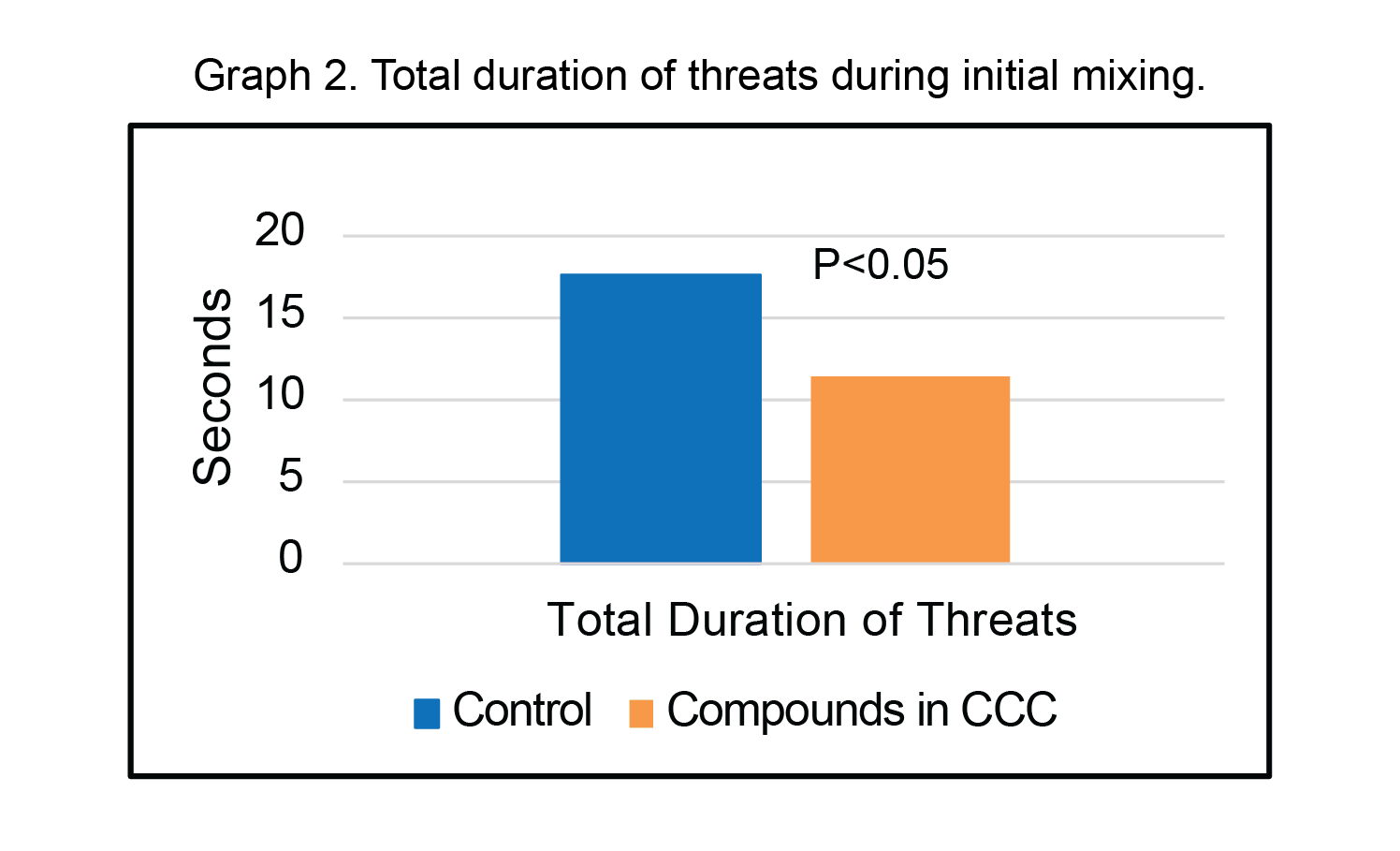
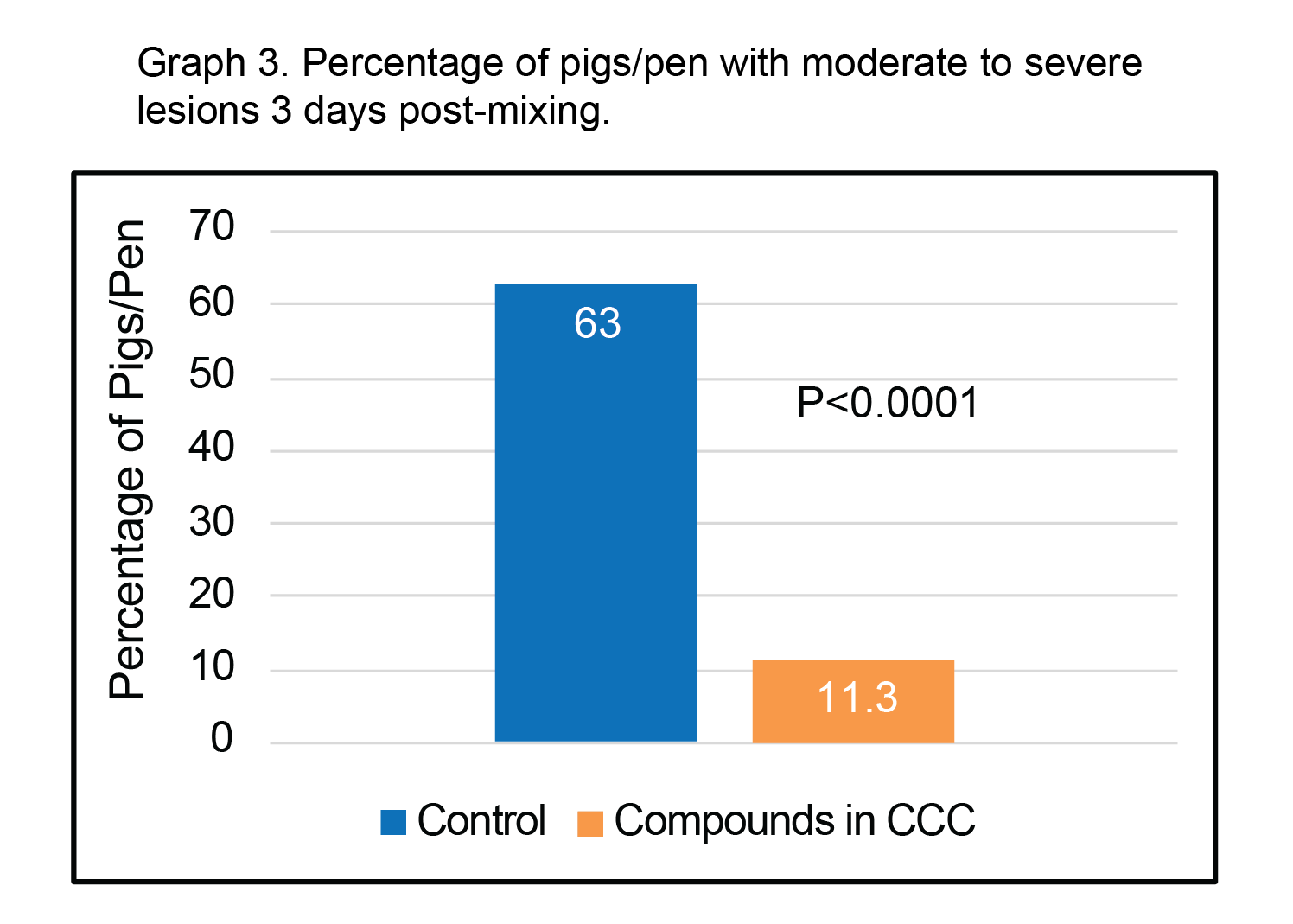
There are many different stressors livestock face at various life stages. Although some of these are avoidable with good management practices, there are a number that are unavoidable. The functional feed and water additives (CCC) were developed by Probiotech for Essential Ag Solutions based on brain-effect-selected molecules to enhance good management practices and help mitigate the consequences of unavoidable stressors through an improvement in animal welfare. Often, there is a decline in feed intake and increased susceptibility to diseases during times of stress. Because CCC impacts both appetite and mood, these deleterious effects on performance are mitigated during unavoidable stressors. Potential uses in turkey production include but are not limited to, times of heat stress, handling, moving from the brooder barn, and vaccination. Whereas potential uses in swine production are during the nursery period, before and after transportation or mixing of pigs, during sow lactation to impact fertility, and during heat stress. Make sure CCC is a part of your solution to improve performance through mitigating stress in your barns.

